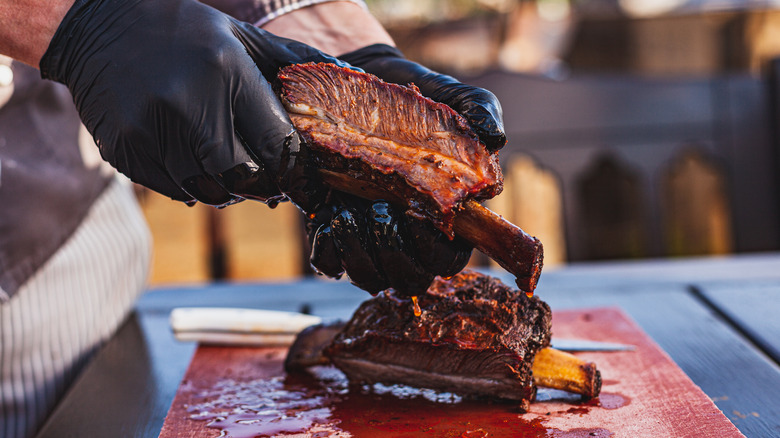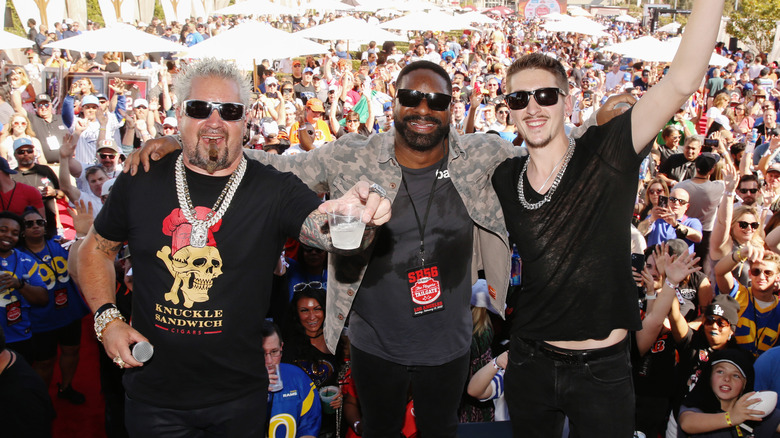What Really Happens To The Leftover Food From The Super Bowl Players Tailgate?
Have you ever heard of the Super Bowl Players Tailgate? Unless you're rich and fancy, you may not have: this annual pre-Super Bowl event is a chef-catered crème-de-la-crème tailgate attended by active NFL players, celebrities, and anyone else who can afford to pay the $875 VIP ticket. An all-you-can-eat affair featuring a menu of gussied-up finger foods, this year's event outside Los Angeles' SOFI Stadium was helmed by food television star Guy Fieri, with additional chefs including former "Top Chef" contestants Michael Voltaggio, Brooke Williamson, and Antonia Lofaso; Todd English; Aaron May; and Nyesha Arrington.
According to the Los Angeles Times, more than 2,500 guests attended the fête this year, chowing down on grilled octopus, short rib cheeseburgers, fresh oysters, BBQ brisket, and more. Of course (as is the case at so many large-scale catering events), there was food left over at the end of the day: a lot of food, to the tune of nearly 2,000 pounds. You may be wondering what happened to it all, especially in light of the pandemic which has led to a rapid increase in food insecurity worldwide. Luckily, an organization was on hand to rescue that food and distribute it among local food banks instead of allowing it to go to waste.
Saving the uneaten food was a gargantuan task
The Food Recovery Network (FRN) is a Washington, D.C.-based nonprofit dedicated to recovering uneaten prepared food and donating it to food banks. According to the Los Angeles Times, the organization is mostly staffed by student volunteers in universities nationwide, who work with campus dining halls to donate leftover meals. Founded in 2010, the organization previously helped out at the 2020 Super Bowl Players Tailgate held in Miami, where, according to the Times, FRN recovered 5,000 pounds of leftovers.
On Super Bowl Sunday 2022, program manager Erin Price was assisted by two colleagues and five volunteers. The team worked to deliver boxes of unopened ingredients as well as trays of fully cooked foods to the Westside Food Bank and the Hollywood Food Coalition. Faced with formidable challenges — among them trying to observe food safety practices in 82 degree heat — FRN was able to recover and donate nearly 2,000 pounds of food.
"Being able to be flexible and problem solve in the moment is really critical," Price told the LA Times. "Food-safety issues are one thing we don't ever want to happen, so if it was a question about the integrity of the food at any point we would just have to say, 'We don't think we can get this donation to you safely' ... Sometimes that's the hard part about it: It doesn't work out. But so far we've been pretty successful."

